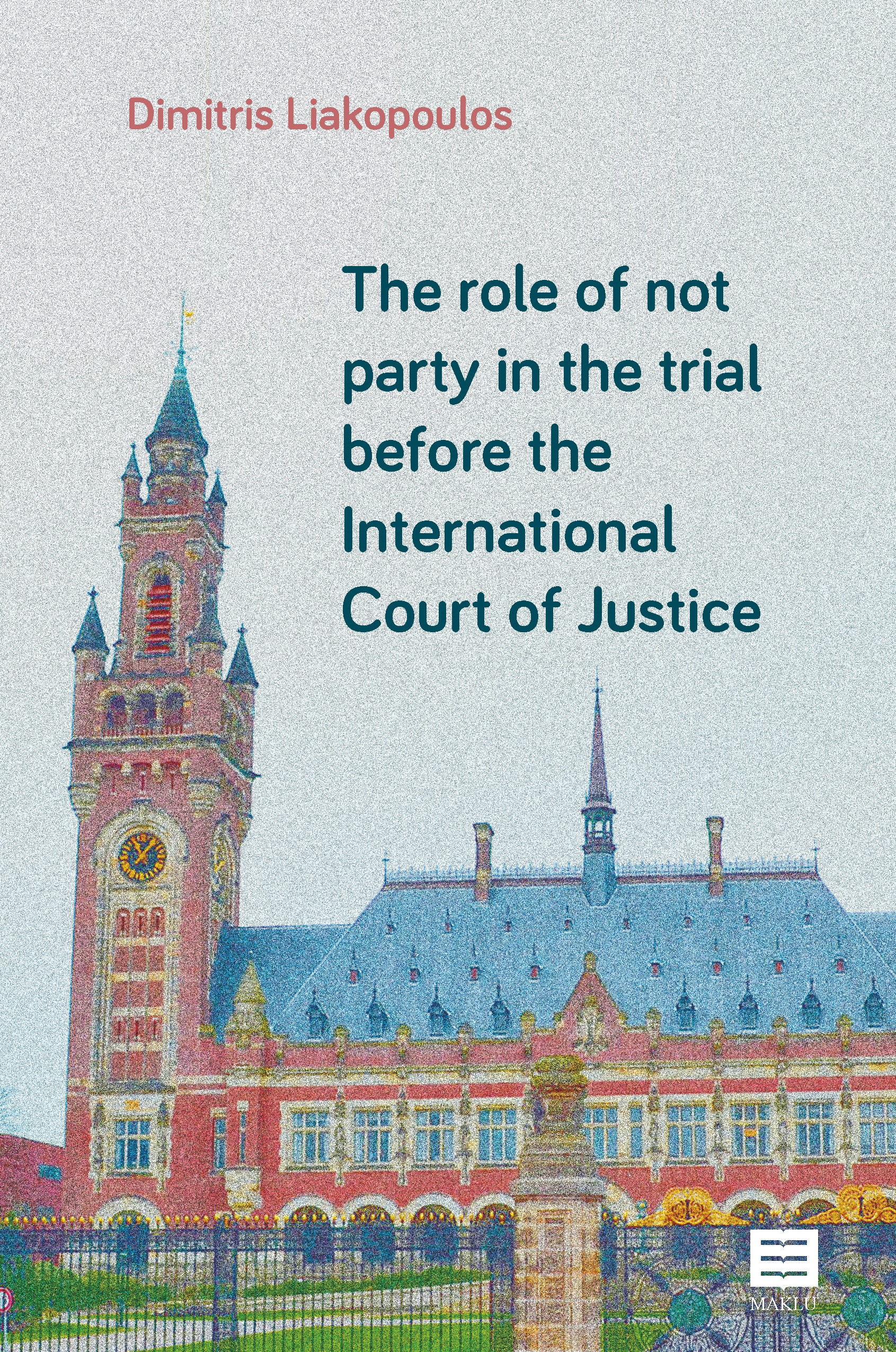Lees
YouBeBusiness
Boekenbon
Impact
Klantenservice
YouBeDo
Wij gebruiken cookies om het bezoek bij YouBeDo.com te verbeteren. Bezoek je onze websites, dan heb je de beste ervaring als je de cookies accepteert.
The role of not party in the trial before the International Court of Justice

€ 75,00
wij doneren € 1,44Voor 22.00 uur besteld, morgen in huis
Tot 12% naar een goed doel dat jij kiest
Samenvatting
The limitations of the present investigation impose to restrict the analysis to the trial system of the International Court of Justice (ICJ), as it is not possible to examine in depth the problem of the position of the third state. The present study intends to contribute to the reconstruction of the structural features of the intervention as not party, as foreseen by articles 62 and 63, of the International Court of Justice (ICJ) Statute. The first part of this survey is dedicated to a general introduction to ICJ function (including principle and legality of acts of ICJ) and continues with the examination of the position of the third state absent from the judgment. First of all, the foundation and the objective and subjective limits of the res judicata are analyzed on the one hand. On the other, there are additional effects with respect to the judgment that the international sentence is likely to produce towards third states and to which the institution of intervention, in its various forms, intends to remedy. The second part is dedicated to the examination of the international trial. Within this framework the absence of an interested party may lead the judge to refuse to exercise its jurisdictional power, where the subject who was not involved in the trial represents a real "necessary party". The examination of this rule, as stated and applied by ICJ, provides a further piece of the framework in which the figure of the third party intervention is inscribed. The type of incidence that a decision whose obligatoriness rests solely on the consent of litigating states has on the legal positions of third states is partly different from the prejudice that can be caused to individuals by a sentence rendered inter alias. It follows that the reasons that can induce a state to decide to take part in a procedure promoted by other states have at times been different from the reasons that induce private individuals to intervene in internal judgments.
Dimitris Liakopoulos is Professor of international law, European Union law and criminal and procedural law in various Universities in US and Europe. Attorney at Law at New York and Brussels. ORCID ID: 0000-0002-1048-6468.
Dimitris Liakopoulos is Professor of international law, European Union law and criminal and procedural law in various Universities in US and Europe. Attorney at Law at New York and Brussels. ORCID ID: 0000-0002-1048-6468.
Productspecificaties
| Taal | Engels |
| Bindwijze | Paperback |
| Oorspronkelijke releasedatum | 10-02-2020 |
| Aantal pagina’s | 843 |
| Hoofdauteur | Dimitris Liakopoulos |
| Hoofd uitgeverij | Maklu, Uitgever |
| Editie | 1 |
| Gewicht | 1409 g |
| Product breedte | 161 mm |
| Product hoogte | 45 mm |
| Product lengte | 241 mm |
| EAN | 9789046610152 |
| NUR | 828 - Internationaal (publiek)recht |
Reviews
Er zijn nog geen reviews voor dit boek. Schrijf jij de eerste?
Service & contact
You can make a difference
Be the change
Do it now.
YouBeDo is een online winkel voor consumenten en bedrijven met een bijzondere missie: goed doen met boeken. Tot 12% van elke aankoop doneren we aan een maatschappelijk doel dat jij kiest.

Heb lief, doe goed
Alle prijzen zijn inclusief BTW en andere heffingen en exclusief eventuele verzendkosten en servicekosten.
 Onze impact
Onze impact